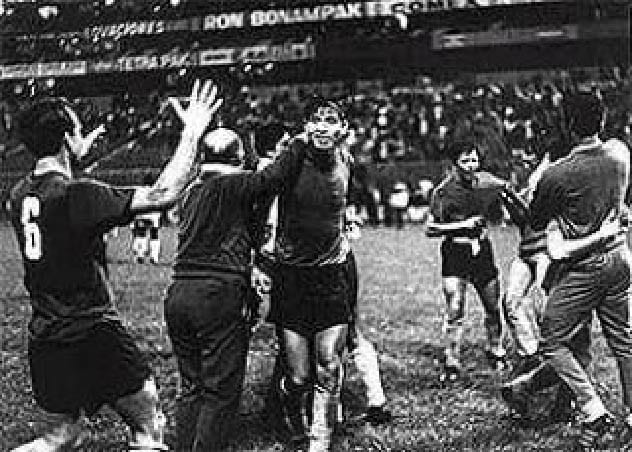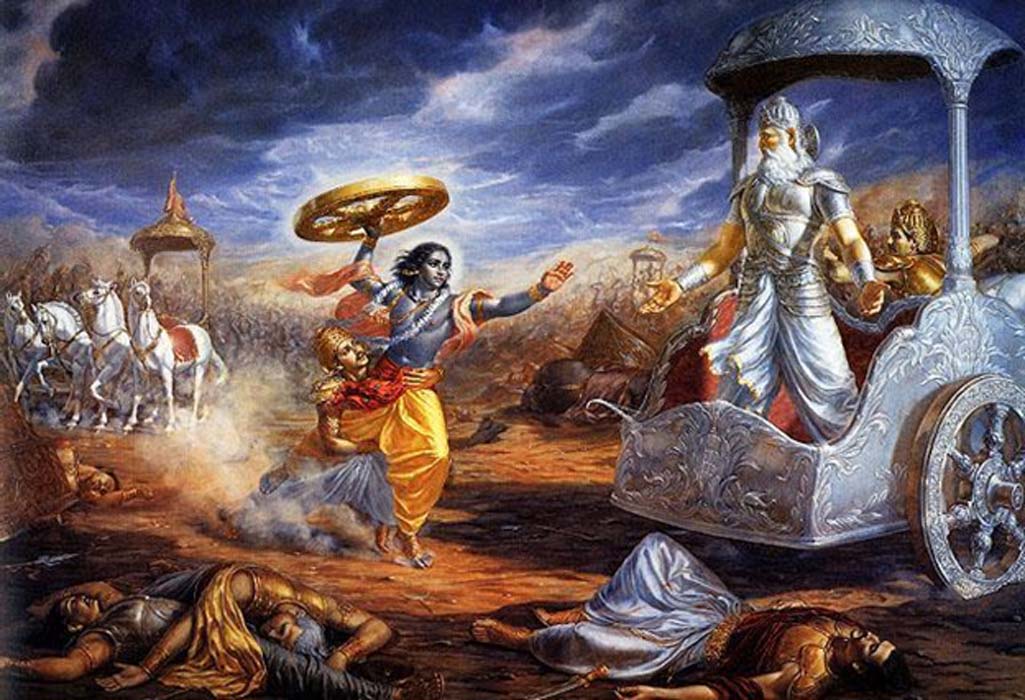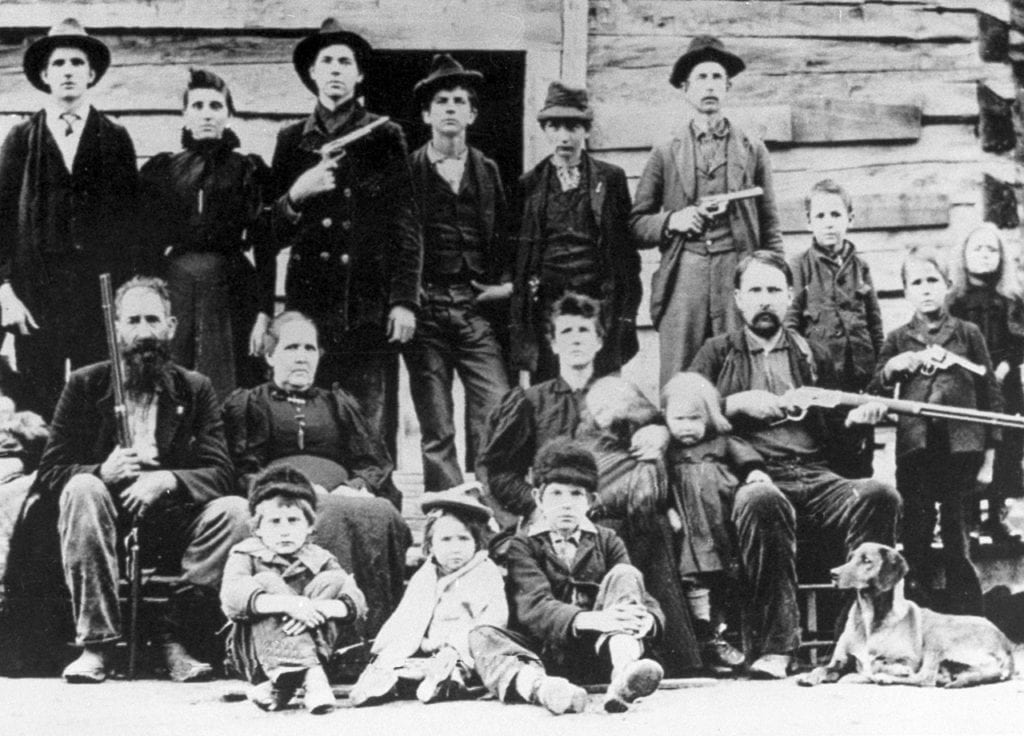 History
History  History
History  Health
Health 10 Everyday Activities That Secretly Alter Consciousness
 History
History Top 10 Historical Disasters Caused by Someone Calling in Sick
 Animals
Animals 10 New Shark Secrets That Recently Dropped
 Movies and TV
Movies and TV 10 Forgotten Realities of Early Live Television Broadcasts
 Technology
Technology 10 Stopgap Technologies That Became Industry Standards
 Weird Stuff
Weird Stuff 10 Wild Facts About Taxidermy That You Probably Didn’t Know
 Travel
Travel 10 Beautiful Travel Destinations (That Will Kill You)
 Miscellaneous
Miscellaneous 10 Modern Marriage Rituals Born from Corporate Branding
 Weird Stuff
Weird Stuff Ten Bizarre Visions of 2026 from Fiction
 History
History 10 “Modern” Problems with Surprising Historical Analogs
 Health
Health 10 Everyday Activities That Secretly Alter Consciousness
 History
History Top 10 Historical Disasters Caused by Someone Calling in Sick
Who's Behind Listverse?

Jamie Frater
Head Editor
Jamie founded Listverse due to an insatiable desire to share fascinating, obscure, and bizarre facts. He has been a guest speaker on numerous national radio and television stations and is a five time published author.
More About Us Animals
Animals 10 New Shark Secrets That Recently Dropped
 Movies and TV
Movies and TV 10 Forgotten Realities of Early Live Television Broadcasts
 Technology
Technology 10 Stopgap Technologies That Became Industry Standards
 Weird Stuff
Weird Stuff 10 Wild Facts About Taxidermy That You Probably Didn’t Know
 Travel
Travel 10 Beautiful Travel Destinations (That Will Kill You)
 Miscellaneous
Miscellaneous 10 Modern Marriage Rituals Born from Corporate Branding
 Weird Stuff
Weird Stuff Ten Bizarre Visions of 2026 from Fiction
10 Times War Was Declared For Really Stupid Reasons
Declaring war is normally considered to be an act of last resort. After all, we reason, no one would risk the safety of their people over a trivial slight.
Would they?
We may hope that all governments would put the interest of their people first, but, if we look to history for examples, we can see that people have declared war on their enemies, their neighbors and even their friends for the most trivial of reasons, and sometimes for no reason at all.
Here are 10 times battle was fought over absolutely nothing.
See Also: 10 Incredible Historic Sites We Lost Forever (Due To Stupidity)
10 Cake Wars

In 1821, Mexico achieved independence from Spain, and, as always in times of political change, this caused a certain amount of civil unrest. In the years that followed, there was often fighting between government forces and rebels, which resulted in damage to the properties of the Mexican people.
One of these properties, near Mexico City, belonged to a French pastry chef.
The chef was unhappy that his bakery had been ransacked and his petit fours stolen by sweet-toothed looters. He applied to the Mexican government for compensation. The government had bigger problems to worry about than his buns, and sent him packing.
The chef, however, was a man of resolve. He decided that, as a French citizen, he would appeal directly to the King of France for help. As it happened, the French government were none too pleased with Mexico over something or other.
They demanded that the Mexican government pay hefty compensation to the baker.
Mexico refused.
In 1838, the French navy began to blockade ports all along the Gulf of Mexico, and the United States lent France a hand in case they ran out of ships. When the blockade did not produce results, the French began to bomb Mexico.
Mexico declared war on France and ordered that all able men be conscripted.
The French, however, were better organised and within days they had captured the entire Mexican navy. Mexico rallied and began to drive the French troops from Mexican soil, back to their ships, and the fight went on.
In all, the Pastry War lasted 4 months until, finally, Mexico agreed to pay compensation to the chef, and the French forces withdrew.
To eat cake.
9 The War over a Pig and Some Potatoes

The Oregon Treaty of 1846, which marked the boundary of America along the 49th parallel, caused something of a problem for the island’s around Vancouver, especially for the island of San Juan, which lay at the mouth of the channel and which was, therefore, strategically important. Both America and Britain laid claim to San Juan, but, for a while, British and American settlers coexisted peacefully on the island.
Until one day in 1859, when a pig wandered over from the British side of the island and helped himself to some potatoes planted by a neighboring farmer on the American side of the line.
The American farmer shot the potato-rustling pig, which happened to belong to an employee of the Hudson Bay company.
The pig owner demanded justice.
The farmer offered him $10.
The pig owner, however, was not satisfied. He reported the ‘murder’ to the British authorities, who threatened to arrest the farmer.
Then things got really weird. The American got up a petition demanding the protection of the US Military, and a company of the 9th Infantry Battalion was sent to the island.
The British countered by sending 3 warships, and a tense stand-off ensued, a Bay of Pigs type incident, involving actual pigs.
The stand-off lasted a month.
By this time, the warring parties were said to number 3 warships, 84 guns and over 2,600 men. The British were then ordered to land their troops on San Juan island, and engage the Americans in battle. At which, finally, common sense prevailed. Admiral Robert Baynes refused to obey orders, saying, he would not “involve two great nations in a war over a squabble about a pig”.
8The ‘Hey, That’s My Chair’ War

The Ashanti Kingdom, now part of modern-day Ghana, was once coveted by the British Empire. King Prempeh, in 1896, refused to become part of the British Protectorate, and so the British forcibly ‘protected’ his kingdom. The Ashanti people did not give up easily however, and fought bitterly against their invaders.
The Golden Stool was a symbol of power in the Ashanti Kingdom. It was supposed to have descended from the sky to land at the feet of the first King of Ashanti, and was believed to hold the soul of the Ashanti nation.
Made from solid gold, the stool was only 18 inches high and 24 inches long, and was considered so sacred, that no one was allowed to sit on it. It was an artifact of immense cultural significance. And then, in 1900, the British Governor of the Gold Coast, Sir Frederick Hodgson, decided that he would quite like to sit on it.
In fact, he demanded to sit on it.
The Ashanti people were outraged, and a fierce war broke out, during which 2,000 Ashanti people and 1,000 British troops died. The war raged for 6 months, until Yaa Asantewaa, the Queen Mother and Gate Keeper of the Golden Stool, was captured.
The stool, however, was not found. It was hidden from the British for many years before it was finally restored to its ceremonial home.
7 There’s a War in My Bucket

Italy, in 1325, was a divided country, divided into those who believed in the supremacy of the Holy Roman Emperor, and those who submitted only to the Pope. That struggle had been ongoing for 200 years, and outbreaks of violence between the 2 sides often started over trivial matters.
The clash of 1325, which resulted in the death of thousands of men, however, was particularly notable, as it began over a wooden bucket. The neighboring towns of Modena and Bologna, held opposing views in the Emperor vs Pope debate. The ruler of Modena encouraged attacks on Bologna. The Pope declared him to be an enemy of the church and offered indulgences to anyone who attacked him.
There were several border skirmishes, where each side would raid an area, slaughter the inhabitants, burn fields and crops and retreat back to their own side.
And then the Modenese soldiers made it to the center of Bologna, where an oak bucket sat next to a well. The bucket was filled with goods which the Bolognans were in the process of hiding from the invaders.
The Modenese stole the bucket, and its contents, took it back to Modena, and displayed it next to their well.
Bologna declared war on Modena. At once the Pope and the Emperor joined the fight. The Pope sent 30,000 soldiers and 2000 knights on horseback. The Emperor sent 5000 soldiers and 2000 mounted knights. In a war that lasted several months, 2,000 men died, until Modena finally won.
The bucket was displayed in the Cathedral at Modena, as a symbol of their victory.
Despite this display of magnanimity, skirmishes continued to break out for another 200 years. Can’t think why.
6 The Soccer War 1969

Every 4 years the soccer World Cup intensifies local rivalries. Usually this is friendly rivalry, or is, perhaps, confined to singing rude songs about the opposition. In 1969, however, things got just a little bit more serious when Honduras and El Salvador fell out while trying to qualify for the 1970 World Cup.
The first leg was played in Honduras, and the Honduran’s won 1-0. The second leg was played in El Salvador, which the El Salvadorians won 3-0.
The Hondurans did not take defeat well. The large Salvadorian communities in Honduras came under attack with many people dragged from their homes and beaten. Shotguns were even fired into supporter’s coaches, and similar incidents had occurred in El Salvador against the Hondurans. It was clear that both sets of supporters bore a grudge.
A play off match was due to take place in Mexico.
Tensions were running high. The match was tied at the final whistle, but, after extra time El Salvador won 3-2.
Which should have settled the matter. However, El Salvador, angry that Honduras “has not taken any effective measures to punish these crimes which constitute genocide” severed diplomatic ties and attacked several Honduran targets via their Air Force.
And, for good measure, they invaded Honduras.
After 4 days of fighting, El Salvador was persuaded to withdraw its troops. It is estimated that each side had around 2,000 dead and injured and some 300,000 of the Salvadorans who had been living in Honduras had been displaced in the unrest following the match.
A soccer match.
5When Someone Got the Hump Over a Camel

Some neighbors just don’t get on. Take the tribes of Taghleb and Bakr, for example. They fought The Basus War for 40 years, over a camel.
It began when the leader of the Tagleb tribe killed a camel which strayed onto its land. Unfortunately, the camel belonged to the wife of the other tribe leader. A small matter, you might think, but when pride and honor are at stake, things can get heated quickly. The Tagleb leader was killed in retaliation, and the 2 tribes were instantly at war.
The Bakr leader, realizing that things had, perhaps got a little out of hand, sent his son to negotiate a truce.
The Taghleb’s killed him.
The Bakr leader swore vengeance and, neither side trusting the other, the fighting continued for 40 years.
4 The Poetry Battle

The Kurukshetra War is said to have broken out in the Indian kingdom of Kuru somewhere around 3000 BC, although estimations of the dates of the war have ranged widely. But no matter when it occurred, the events were recorded in one of the most famous Hindu epic poems, so we can rest assured that we know exactly what happened.
The Pandavas and the Kauravas were neighboring, and rival tribes. The trouble began over a game of dice between the sons of the reigning tribe leaders, which was always going to cause trouble. The trouble got worse when the Kauravas son decided to cheat. When he ‘won’ the right to rule the entire Pandavas kingdom for 13 years, all on the throw of a loaded dice, feelings ran high.
According to the poem, the Pandavas honored the dodgy bet and went into exile, at the end of which the Kauravas refused to hand back the territory, denying all knowledge of the agreed terms. The Pandavas were left with no choice but to declare war.
So far, so plausible.
A full-scale war ensued, which, according to the poem at least, resulted in a death toll that made World War I look like a skirmish.
Perhaps the casualty rate of 2 million was slightly over-inflated, but, the Kauravas did insult Lord Krishna, who had condescended to try and mediate the dispute. Annoying a deity is always good for pushing up the death toll. (And it wasn’t just soldiers that died. There were, apparently, also 390,000 elephants and over a million horses)
The two sides drew up detailed Rules of Engagement to ensure fair play, which included, no fighting after dark, only one-on-one fighting allowed, and both fighters having equal weaponry. There was also some guff about not killing women, the wounded, or animals, but it was all pretty irrelevant because neither side stuck to the code.
The war lasted 18 days, at the end of which there was almost no one left. The Pandavas, with the help of Lord Krishna, technically won, though by that time it must have all looked a bit moot.
Although not all the details of the war can be verified, and some are almost certainly exaggerated, it is generally accepted that some sort of war took place between the two tribes, and quite possibly as a result of the crooked game.
3 The War of the Stray Dog

Greece and Bulgaria have had an historically difficult relationship, and in the early 1920s tensions were at their height. Gangs of men from both countries would cross the border to steal property and livestock from their neighbors, and these raids would often end in bloody violence.
Sometimes it is difficult to identify a single inciting incident in a conflict, but in October 1925, there could be no doubt. The ensuing war was caused by a stray dog. At a border crossing, a playful dog, oblivious of nationality, managed to get off his leash went for a run around. His owner, a Greek soldier, took a few steps into Bulgarian territory to catch his dog, whereupon a Bulgarian sentry shot him.
Both sides immediately opened fire, before a Greek officer waving a white flag, crossed into no-mans land to appeal for calm. The Bulgarians shot him too.
The skirmish was the first test of strength for the new Greek military dictator, and he responded decisively. He gave Bulgaria 48 hours to apologize, arrest the snipers and compensate the families of the victims. Then, without waiting the 48 hours, he invaded Bulgaria anyway.
The Greek army were not restrained. They looted and pillaged their way across Bulgaria, burning villages in their path.
Bulgaria pushed back.
Greece decided to call on its allies, and invited Serbia to join them in defending the honor of the dog.
Bulgaria went to the League of Nations for protection.
The war escalated quickly, and at least 50 people were killed as a result. The League of Nations judged Greece to be the aggressor and demanded that they pay compensation. The Greek dictator was humiliated and soon found himself overthrown.
The entire incident served to demonstrate how a small incident can have unintended and far reaching consequences and why it is extremely important to always keep your dog on a leash.
2 The Bird Poop War

When thinking about precious commodities, bird poop isn’t usually the first thing that springs to mind. Most people find it more of an annoyance than anything else. But in 1864, Spain attacked Peru (not for the first time), in order to get their hands on Peruvian bird poop.
This particular bird poop, or guano as it was also called, was discovered to be excellent fertilizer, and 30 times more potent than cow manure. The Spanish couldn’t get enough of it.
However, the Peruvians had been beaten by the Spanish before. They may have lost the gold, but they were determined to keep the dung. They knew all about its miraculous growing properties.
Spain decided to occupy the Chinca Islands, where the roads were, literally, paved with guano, until they could come to an agreement.
Peru called in its navy, and its neighbor, Chile, joined in the fight, which lasted 2 years, after which Peru managed to take back control of the Poop Islands, which are still rich in, er, natural resources and which you may, or may not, like to know, you can still visit today.
1 The Never-ending War

The Hatfields and the McCoys were two families who lived along the border between West Virginia and Kentucky around the time of the civil war.
The Hatfields and McCoys did not like each other.
The families had been on opposite sides during the war and it is probably fair to say that both families were as bad as each other.
The real trouble, however, began with the murder of a McCoy by, it was suspected, a Hatfield.
The feud simmered on, and a McCoy claimed that a Hatfield had stolen his pig. The McCoy claimed to be able to identify the pig by the markings on his ear. The Hatfields claimed that the mark was, in fact, a Hatfield mark.
A judge ruled in favor of the Hatfields.
1-1.
Then a witness who had testified at the pig trial was found murdered. Two McCoys were tried, but acquitted, of murder on the grounds of self-defense.
Still 1-1
Then one of the McCoy women went to live with a Hatfield, which would have been 2-1 to the Hatfields, but the woman soon returned to her own family. When the two lovers tried to reconcile in secret, the Hatfield boy was arrested on the say-so of the McCoys on a bootlegging charge
2-1 to the McCoys.
The McCoy woman, distraught at losing her lover, rode through the night to warn the Hatfields, who rescued him from the McCoys.
2-2.
Despite the McCoy woman’s courage in rescuing her lover, the lover turned out to be not worth the effort, and he abandoned her when she became pregnant.
3-2 to the Hatfields
Then he took up with her cousin, also a McCoy
4-2
And so, it went on.
A Hatfield was stabbed 26 times, his McCoy assailants were tied to a tree and shot.
Another McCoy killed another Hatfield.
Another Hatfield returned the favor
Then, on New Year’s Eve 1888, several members of the Hatfield clan surrounded the McCoys’ cabin and opened fire on the family while they slept. They set the cabin on fire, killing 2 of the children, and they beat a woman almost to death.
Some McCoys escaped into nearby woods, only to succumb to frostbite.
By this time, no one knew the score.
A posse, which included some of the few remaining McCoys, set out to track down the Hatfields. They shot and killed one Hatfield and several supporters before cornering the rest of them at Grapevine Creek.
But the Hatfields were prepared.
A vicious battle ensued, and at its conclusion, the few Hatfields and McCoys
who had survived the battle were arrested. Some were sentenced to life in prison, and one was hanged.
Final score: Nil—Nil
For more lists like this, check out 10 Animals That Paid The Price Of Tourist Stupidity And Cruelty, and 10 Family Films Banned For Stupid Reasons
About The Author: Ward Hazell is a freelance writer and travel writer, currently also studying for a PhD in English Literature








